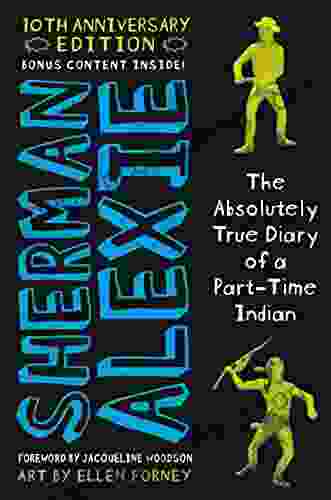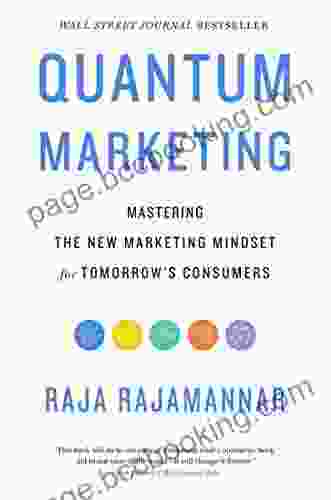The Political Thought of Harry Oppenheimer: A Comprehensive Exploration


5 out of 5
| Language | : | English |
| File size | : | 5683 KB |
| Text-to-Speech | : | Enabled |
| Screen Reader | : | Supported |
| Enhanced typesetting | : | Enabled |
| Word Wise | : | Enabled |
| Print length | : | 288 pages |
: Harry Oppenheimer's Significance
Harry Oppenheimer, the legendary South African businessman and political figure, left an indelible mark on the country's history and the global mining industry. Beyond his commercial achievements, Oppenheimer held profound political convictions that shaped his views on liberalism, capitalism, and the role of business in society.
This article aims to provide a comprehensive exploration of Harry Oppenheimer's political thought, examining its historical context, core principles, and the impact it had on South Africa and beyond.
Philosophical Foundations: Liberalism and Capitalism
Oppenheimer's political ideology was deeply rooted in liberalism, a philosophy that emphasizes individual rights, limited government intervention, and free markets.
He believed that capitalism, based on the principles of private property and free enterprise, was the most effective economic system for promoting economic growth and prosperity. Oppenheimer argued that a free market economy allowed for innovation, competition, and the efficient allocation of resources.
The Role of Business in Society
Oppenheimer strongly advocated for the active role of business in society beyond profit-making. He believed that corporations had a responsibility to contribute to the overall well-being of the communities in which they operated.
Oppenheimer's company, Anglo American, implemented numerous corporate social responsibility initiatives, including education, healthcare, and employee welfare programs. He argued that businesses could be a force for positive social change by creating jobs, investing in infrastructure, and supporting local communities.
Oppenheimer and Apartheid
Oppenheimer's political views were complex and often paradoxical. While he was a staunch believer in liberalism and free markets, he also operated his businesses in South Africa under the apartheid regime.
Oppenheimer publicly opposed apartheid and advocated for racial equality, but he also believed that economic growth and stability were essential for achieving social progress. He argued that engaging with the apartheid government and investing in South Africa's economy could ultimately lead to a more just and equitable society.
Legacy and Impact
Harry Oppenheimer's political thought continues to influence and inspire leaders in business and politics today. His belief in the power of liberalism, capitalism, and corporate responsibility has shaped economic and social development policies in South Africa and beyond.
Oppenheimer's legacy as a pioneer in corporate social responsibility remains a model for businesses worldwide. His emphasis on the role of business in addressing social issues has paved the way for a more inclusive and sustainable approach to economic development.
: A Visionary Thinker
Harry Oppenheimer was a visionary thinker whose political ideas helped shape the course of South African history and the global mining industry. His belief in liberalism, capitalism, and the social responsibility of business continues to resonate today, making him a profound and enduring figure.
By understanding Harry Oppenheimer's political thought, we gain valuable insights into the complex challenges and opportunities of balancing economic growth, social justice, and individual freedom.
5 out of 5
| Language | : | English |
| File size | : | 5683 KB |
| Text-to-Speech | : | Enabled |
| Screen Reader | : | Supported |
| Enhanced typesetting | : | Enabled |
| Word Wise | : | Enabled |
| Print length | : | 288 pages |
Do you want to contribute by writing guest posts on this blog?
Please contact us and send us a resume of previous articles that you have written.
 Book
Book Novel
Novel Page
Page Chapter
Chapter Text
Text Story
Story Genre
Genre Reader
Reader Library
Library Paperback
Paperback E-book
E-book Magazine
Magazine Newspaper
Newspaper Paragraph
Paragraph Sentence
Sentence Bookmark
Bookmark Shelf
Shelf Glossary
Glossary Bibliography
Bibliography Foreword
Foreword Preface
Preface Synopsis
Synopsis Annotation
Annotation Footnote
Footnote Manuscript
Manuscript Scroll
Scroll Codex
Codex Tome
Tome Bestseller
Bestseller Classics
Classics Library card
Library card Narrative
Narrative Biography
Biography Autobiography
Autobiography Memoir
Memoir Reference
Reference Encyclopedia
Encyclopedia Sylvia Yordanova
Sylvia Yordanova Rafael Jaen
Rafael Jaen Norman Bridwell
Norman Bridwell Zhi Gang Sha
Zhi Gang Sha Tomasz Witkowski
Tomasz Witkowski Uta Hagen
Uta Hagen Peter Brook
Peter Brook Ronald E Mickens
Ronald E Mickens Patrick D Hahn
Patrick D Hahn Rockridge Press
Rockridge Press Sam Parker
Sam Parker Pat Mills
Pat Mills Patrick Hill
Patrick Hill Tami Lynn Kent
Tami Lynn Kent Shahan Mufti
Shahan Mufti Susan Eisenberg
Susan Eisenberg Wendy Laura Belcher
Wendy Laura Belcher Richard Sala
Richard Sala Peter Maguire
Peter Maguire Russell Jeung
Russell Jeung
Light bulbAdvertise smarter! Our strategic ad space ensures maximum exposure. Reserve your spot today!

 Samuel Taylor ColeridgeThe Absolutely True Diary of a Part-Time Indian: A Journey of Cultural...
Samuel Taylor ColeridgeThe Absolutely True Diary of a Part-Time Indian: A Journey of Cultural...
 William FaulknerThe Amazing Spongebobini: A Journey into the Enchanted World of Spongebob...
William FaulknerThe Amazing Spongebobini: A Journey into the Enchanted World of Spongebob...
 Marvin HayesGoverning Law for Law School and Bar Exam Prep: Your Essential Guide to Legal...
Marvin HayesGoverning Law for Law School and Bar Exam Prep: Your Essential Guide to Legal... William ShakespeareFollow ·4.3k
William ShakespeareFollow ·4.3k Terry BellFollow ·12.7k
Terry BellFollow ·12.7k Gary CoxFollow ·9.7k
Gary CoxFollow ·9.7k Dwight BellFollow ·13.5k
Dwight BellFollow ·13.5k Jorge Luis BorgesFollow ·6.3k
Jorge Luis BorgesFollow ·6.3k Guillermo BlairFollow ·13.4k
Guillermo BlairFollow ·13.4k Lucas ReedFollow ·14.6k
Lucas ReedFollow ·14.6k Sean TurnerFollow ·14.2k
Sean TurnerFollow ·14.2k

 Marvin Hayes
Marvin HayesGoverning Law for Law School and Bar Exam Prep: Your...
Unlock the Secrets of...

 Sidney Cox
Sidney CoxUnveiling the Epic Tales of Whiskey, War, and Military...
In the tapestry of history,...

 Victor Turner
Victor TurnerGoverning Law for Law School and Bar Exam Prep: The...
What is Governing...

 Robert Browning
Robert BrowningSterling Test Prep MCAT General Chemistry Practice...
: Embark on Your MCAT General Chemistry...
5 out of 5
| Language | : | English |
| File size | : | 5683 KB |
| Text-to-Speech | : | Enabled |
| Screen Reader | : | Supported |
| Enhanced typesetting | : | Enabled |
| Word Wise | : | Enabled |
| Print length | : | 288 pages |










